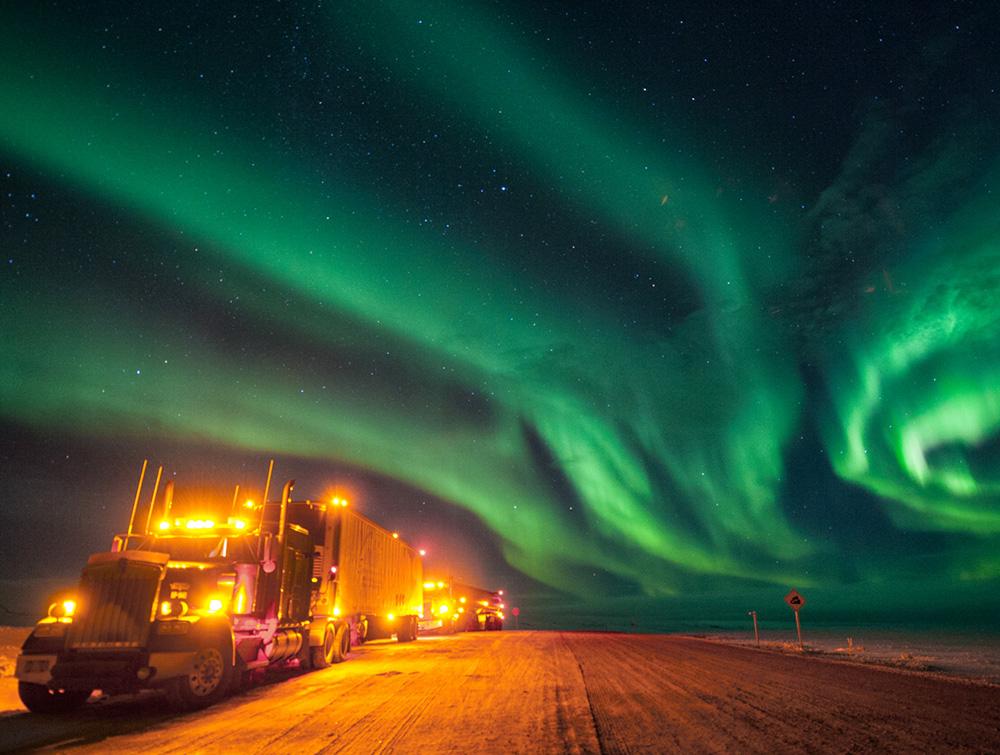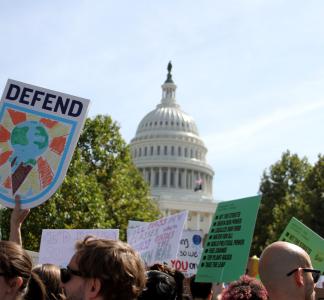Insuring our tomorrow: A call for climate-conscious reforms in the insurance sector

Peter Mather
American insurance companies abandon customers and invest in fossil fuels
AUTHOR: Kiana Karimi
To combat increasingly devastating events such as hurricanes and raging wildfires, State Farm boasts its readiness to help its policyholders with the largest catastrophic team in the industry.
What it doesn't boast about is how it invests its customers' premiums – to the tune of $30 billion – in the fossil fuel industry that is directly linked to catastrophes worsened by climate change.
It also doesn’t boast about how it raises rates or abandons its customers in high-risk zones when the company finds potential losses undesirable.
State Farm is not the sole bad actor– collectively, insurance companies have invested $582 billion of their customer’s premiums in the fossil fuel industry. They’ve also increased current policy holders’ premiums while rejecting new homeowner contracts in certain regions.
Insurance companies across the United States are taking steps to reduce their risk exposure in states such as California, Florida and Louisiana, which are heavily impacted by climate change. As of May, State Farm, All State, and Farmers Insurance had halted new home insurance applications in California, citing the growing wildfire risks.
American insurance companies lag behind others when facing climate change
While few might be expecting insurance companies to take the lead on progressive change, we certainly don't need them making the challenges we face worse. American insurance companies – with the exception of Axis – have no net-zero carbon emissions plans. In contrast, European companies such as Munich Re are backing out of oil and gas investments and even committing to net-zero greenhouse gas emissions by 2050.
Many American insurance companies also support the American Legislative Exchange Council, which claims to support pro-climate initiatives while maintaining a record of denying climate change and aggressively opposing green policies. Meanwhile, The Tax Reform Act of 1986, allows climate-harming investments by giving insurance companies tax credits for oil and gas investments. Instead of supporting its customers, American insurance companies are making money off of the catastrophes they face while leaving customers with the bill.
Insurance companies must divest from fossil fuels and support their customers
Due to ignorance and greed, insurance companies are creating a complex crisis of ever-worsening climate catastrophes amid widespread calls for fundamental change.
That change must begin with insurance companies immediately divesting from the fossil fuel industry, because the projects their investments are funding – such as potential drilling in the Arctic National Refuge, release gasses such as carbon and methane, warming the planet and harming public health.
New policies must also be created to increase transparency within the insurance industry and limit rising premiums.
Lastly, top insurance companies such as Traveler’s, Liberty Mutual, and The Hartford that cover high-risk projects such as the Willow Project in the Western Arctic – where ConocoPhillips will artificially cool melting permafrost to support the production of more greenhouse gasses – must establish policies against insuring such irresponsible projects.
Without insurance companies’ investment and insurance, the oil and gas industry cannot drill in places such as the Arctic. Insurance companies have a unique power to halt climate-harming ventures.
They must use that power to halt this malignant cycle.
A call for a comprehensive climate plan for public lands from the Biden Administration
Carla Ruas
Biden admin approves climate-polluting Willow drilling project despite viral #STOPWILLOW campaign
Lisa Hupp/USFWS
Why we vitally need public lands and waters for responsible renewable energy
Daniel Hoherd, flickr



